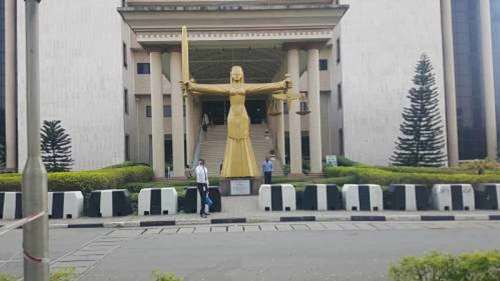The Federal Capital Territory High Court in Abuja has decided to proceed with the trial of 20 former leaders of the Petroleum Tanker Drivers (PTD) branch of the Nigeria Union of Petroleum and Natural Gas Workers (NUPENG), despite the absence of one of the defendants, Adamu Umaru. Justice Yusuf Halilu, presiding over the case, ruled that the trial would continue without Umaru, citing his repeated absences from court hearings and a breach of his bail conditions. This decision followed arguments presented by the prosecution, who accused the defense of deliberately delaying the trial. The prosecution contended that Umaru’s absence, the third such instance, was a calculated tactic to obstruct the swift administration of justice, particularly since all defendants had been granted bail. They invoked Section 352(4) of the Administration of Criminal Justice Act (ACJA), which allows for proceedings to continue in a defendant’s absence under certain circumstances.
The 20 defendants, including the former PTD National Chairman, Lucky Osesua, are facing a five-count charge brought by the Attorney General of the Federation. The charges include attempted murder, breach of peace, and assault, stemming from an alleged attack on NUPENG’s National President, Williams Akporeha; the union’s Secretary-General, Olawale Afolabi; and the current PTD National Chairman, Augustine Egbon. The prosecution alleges that the defendants’ actions were intended to cause the death of these individuals. All defendants have pleaded not guilty to the charges. The trial is significant due to the potential implications for the leadership and stability of the crucial oil and gas sector union, and the broader implications for industrial relations in Nigeria.
The defense counsel, representing Umaru, explained his client’s absence by claiming he was in custody at a correctional facility in Calabar, a circumstance supposedly beyond his control. The defense argued that this situation rendered Section 352(4) of the ACJA inapplicable, emphasizing that Umaru remained innocent until proven guilty according to the Nigerian Constitution. However, the prosecution countered that no evidence had been presented to substantiate Umaru’s alleged incarceration and accused the defense of employing delaying tactics. This clash of legal interpretations and accusations of deliberate obstruction highlights the complexities and potential pitfalls of the Nigerian legal system, especially in high-profile cases.
Justice Halilu, in his ruling, acknowledged the constitutional right to bail but stressed that it comes with responsibilities, most notably the obligation to attend scheduled court appearances. He deemed Umaru’s absence a violation of his bail conditions and sided with the prosecution’s argument to proceed with the trial under the provisions of the ACJA. The judge’s decision underscored the importance of respecting the judicial process and adhering to bail conditions. He also issued a stern warning that the bail of all defendants could be revoked if the defense continued to exhibit what he perceived as a lack of seriousness in handling the case. This warning served to emphasize the court’s commitment to ensuring a timely and efficient trial.
The judge’s decision to proceed with the trial in Umaru’s absence sets a precedent and underscores the court’s determination to avoid undue delays in legal proceedings. It also raises important questions about the balance between an individual’s right to be present at their trial and the need for efficient administration of justice. Furthermore, the judge’s warning regarding the potential revocation of bail for all defendants serves as a strong message about the consequences of disregarding court procedures and bail conditions. This case highlights the challenges faced by the Nigerian judicial system in balancing the rights of defendants with the need for expeditious and fair trials.
Following the ruling, the second prosecution witness, Williams Akporeha, completed his initial testimony. The case was then adjourned to July 9 for the cross-examination of Akporeha by the defense. The continuation of the trial without Umaru represents a significant development in the case and signals the court’s determination to bring it to a conclusion, despite the challenges posed by the absence of one of the accused. The upcoming cross-examination of Akporeha is expected to be a crucial stage in the proceedings, as it will provide the defense with an opportunity to challenge his testimony and present their own version of events. The outcome of this trial holds considerable weight for all parties involved and could have far-reaching consequences for the Nigerian oil and gas sector.


